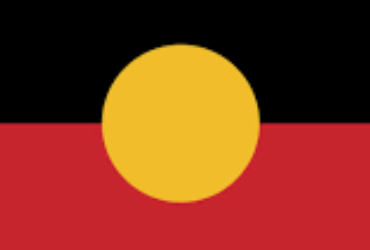
Labor commits to continue funding ranger programs
[supplied by Northern Land Council]

Yugil Mungi Rangers. Image: NLC
The Northern Land Council (NLC) celebrates the commitment by Northern Territory (NT) Labor to fund Indigenous Ranger programs in the Territory.
There are currently 31 Indigenous ranger groups operating across the vast expanse of the NLC’s seven regions. Traditional Owners of these regions are responsible for 210,000-square-kilometres of land and 2,072-square-kilometres of water.
The NLC welcomes Minister Selena Uibo announcement that, if Labor is re-elected, it would continue its commitment to funding the NT Aboriginal Ranger Grants Program, providing $12 million until June 2029.
Whilst the Country Liberal Party (CLP) have indicated that they will match NT Labor’s funding commitment, the NLC still awaits a public statement with details and confirmation of CLP’s matched, or even greater, investment in Indigenous ranger programs, specifically.
Labor’s funding will directly go to enhancing the work of rangers to keep Country healthy and productive. It will continue to ensure practical outcomes through supporting rangers with their essential equipment, facilities, skills development and links to researchers to support important jobs on Country.
Indigenous ranger programs in the NT deliver long-term environmental, economic and social development outcomes, and are internationally recognised as best-practice natural and cultural resource management models. Despite this, many Indigenous ranger groups are significantly under-resourced to manage their land and sea Country.
The NLC acknowledges that Labor’s commitment gives Indigenous ranger programs the security they need.
However, it highlights that there has been no increase in funding since 2017. During this time, both operational expenses and workloads have significantly increased.
Expanding, not only extending, funding would ensure rangers are equipped to meet the growing demands.
NLC Chair Matthew Ryan said “The NT government’s funding goes directly on-the-ground to ranger teams who know Country and how to care for it.
“Aboriginal rangers are out there, day in day out, tackling some big threats on the Territory environment like controlling invasive weeds, retrieving ghost nets, managing fire in the savannas, and controlling feral animals from our wetlands.
“The work that rangers do supports our fisheries, productive wetlands, healthy rivers and savanna landscapes. They help keep the Territory environment strong. Traditional Owners have dedicated a network of their Country as Indigenous Protected Areas focused on keeping Country healthy for generations to come.
“It’s great Labor has committed to ongoing funding to support these programs operating in remote areas. The rangers are ensuring healthy land and seas for the benefit of all Australians. Let’s see the same good news from CLP, and also the investment in rangers grow.”
Senior Ranger (Numburindi – South-East Arnhem Land) Clive Nunggarrgalu said “My role is to take care of my Country. I'm really proud of my ranger job. I understand the law, the culture,
and the sacred site area.
“We see many threats to Sea Country, and work to keep it safe - protecting the dugong, dolphin, turtle, seaweed, and the little crab. It’s important to clean up the ghost nets floating in the water too. The risk is also the pig, buffalo, donkey, horses. That buffalo is the biggest risk and the pig – ruining all the food and the water. Pig is dangerous for the community. We are worrying about the beach side – the mangroves dying out and what's causing that problem.
“NT government ranger grants are an important for us as we need new equipment, new vehicles and upgrades to our ranger base to keep doing our important work.”
LATEST NEWS

CEQ launches innovative recycling project [supplied by Gavin Broomhead] Not-for-profit remote store operator Community Enterprise Queensland (CEQ) is proud to announce the launch of its innovative Resource Recovery Project, a recycling initiative across remote communities in the Torres Strait Islands and Cape York Peninsula.

Noli Rictor wins top prize at National Aboriginal and Torres Strait Islander Art Awards [Hannah Story and Rudi Bremer, ABC] Noli Rictor has won the $100,000 top prize at the National Aboriginal and Torres Strait Islander Art Awards (NATSIAAs), the longest-running and most prestigious award for Indigenous artists.

Inside Indigenous music's night of nights [Al Newstead, ABC] August is a special time of year in the Top End. It’s the balmy dry season, and thousands gather each year on the gently sloping hill of the Darwin Amphitheatre. They’re here for the National Indigenous Music Awards (NIMAs), the biggest and arguably most beloved celebration of First Nations music in Australia.




.png)

.png)